Premium Only Content
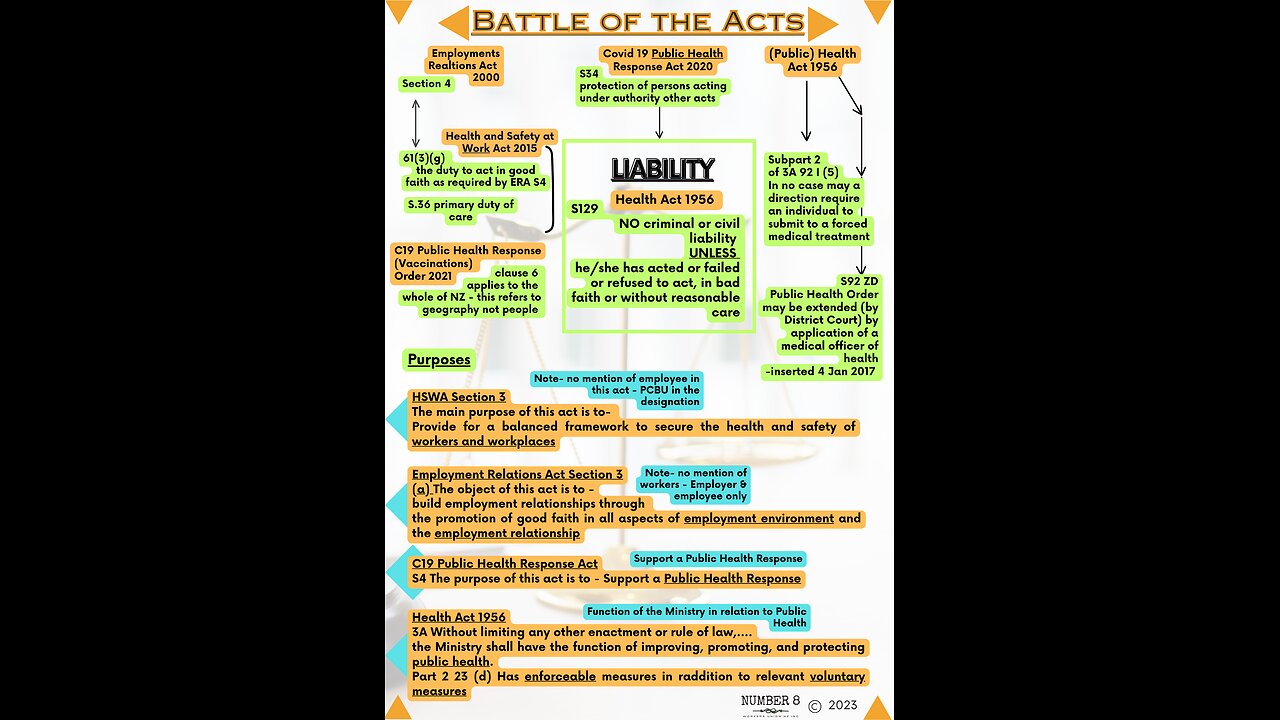
Liz Lambert Explains C19 Legislation Exemptions and Exceptions
Liz explains clause 9 exceptions and 12A exemptions of the Covid legislation which a have always been there in plain sight so why didn't the lawyers see them?
The bosses/PCBU relied on them for good legal advice... and the fallout from that is huge!
Please give this video a like below and share this video to everyone you know!
Please also remember to support Amanda Turner with her case going to the Court of Appeal - This is a freedom of speech case - the decision from which is of National Importance to all of you who value freedom of speech which in particular is freedom of political speech
Also support Ants Haines with his case against Worksafe who coerced, harassed and bullied business unlawfully. WS had no authority to impose any kind of fines around C19 legislation alleged infringements, causing many businesses to shut down temporarily losing vital income or to shut down permanently - This has had a huge impact on NZ's economy - Stand Up businesses!!!
Please join Number 8 WUNZ even if you do not have an employment case and need our help for that - Donations are very gratefully accepted or join on a quarterly or yearly subscription for less than a coffee a week!!
Timeline & Show Notes:
1 – 00:00:00 - The discussion was centered around comments made by Hipkins, a New Zealand official, about vaccines and mandates.
- Hipkins stated that no one was forcibly vaccinated, it was a choice. But businesses that chose not to require vaccines ended up laying people off, which he said was on them, not the government.
- However, the Liz argues Hipkins framed it as the businesses' choice, not the individual workers' choice.
- Legally, the government never mandated vaccines, they kept one step removed by including exemptions in public health orders.
- Clause 7 exemptions were the ones that everybody was focused on as workers because those were the ones that workers themselves could go after. And on the 7th November 2021 they were revoked.
- Over 11,000 exemptions were granted to workers under 12A clause aka Significant Service Disruption exemptions (SSDs)/operational exemptions. So, businesses had a choice to use exemptions or not.
- Non-public sector businesses asked the government for protection if they privately mandated vaccines for workers.
- But in reality, no officials like CEOs were actually designated with proper authority to impose vaccine requirements or handle exemptions. So, their actions were unlawful. They had to be designated and under the health, under the Health and Safety Act under Section 191.
- US investigations into Fauci.
- In this section, the Liz argues the vaccine policies and mandates were improperly implemented both in the public and private sectors due to a lack of proper legal authority.
2 - 00:12:03 - There was a conflation of workplace health and safety laws with public health laws regarding COVID-19. The legislation referred to public health, not workplaces.
- The 2020 COVID-19 Public Health Response Act and related regulations were about public health, not workplaces.
- Businesses fined by WorkSafe could not be hooked to workplace laws as COVID was a public health issue, not workplace. Fines were tried under old acts but didn't stick.
- This caused businesses to be caught in the middle. The My Vaccine Pass system was also voluntary.
- Clause 9 of the public health orders included exemptions for businesses from the start. Many employers were unaware or ignored these exemptions.
- Not looking at exemptions constitutes bad faith under the Employment Relations Act as it fails to conduct employment in good faith.
- The union is arguing past employer actions around vaccines and mandates showed bad faith due to failure to consider exemptions.
- Businesses are now in a vulnerable position and the union offers to help them understand the legal issues rather than take cases against individual staff. Businesses could sue WorkSafe.
- Exceptions came under original clause 9.
- This section focuses on the key legal points around distinguishing public health law from workplace law, issues with fines under wrong laws, obligation to consider exemptions in good faith, and the current position of employers facing fallout from vaccine policies.
3 - 00:22:35 - Clause 9 of the public health orders included exceptions from the beginning for those unable to get vaccinated or it was not practical, like emergency services. This was ignored by many employers. PCBU’s.
- Version 3 of the orders in August 2021 introduced clause 12A (Power of Minister to grant exemptions) allowing exemption applications by businesses for employees.
Everyone, including health workers, could initially qualify for exemptions but this was later restricted. However, 11,005 health workers still received them.
- The process required businesses to apply to the Minister who could request information, but decisions appeared rubber-stamped. Language was vague to allow flexible interpretation. 23 Medicines Act 1981 - Minister may give provisional consent. Pfizer had not done any tests on transmission prevention.
- Exemptions were meant to reduce disruption but some question if they were quietly conditioned to be kept private. Was subclause 6 used to gag?
- Clause 7A introduced at the same time allowed exemptions for those handling "affected items" which seemed tailored to border cleaners/MIQ workers but wording could also apply to healthcare workers.
- Definitions are important but "affected items" and "other needs" were not defined, allowing broad interpretation of who could qualify for exemptions.
- The summary focuses on the introduction and wording of key clauses for exceptions and exemptions in the public health orders, and how vague or broad language may have allowed more workers to qualify than intended.
4 - 00:37:45 - Liz questions the validity of "affected persons" under the health orders, as COVID was not a work-related disease. This brings the orders into conflict with the Health and Safety at Work Act.
- Clause 7A exemptions could apply to those with physical or "other needs" such as psychological/spiritual needs. Suitably qualified health practitioners could determine vaccination was inappropriate. Perhaps a suitably qualified health practitioner in this instance could be a psychiatrists, psychologists, counselor or chiropractor etc.
- Practitioners provided letters but employers often disregarded these and demanded more information. This violates doctor-patient confidentiality.
- The 2020 COVID Response Act Section 34 references the protection in Section 129 of the Health Act 1956 for legal liability for actions taken under health legislation/orders.
- Section 129 provides protection unless persons acted in "bad faith or without reasonable care." Liz discusses that many employers/health sector refused or failed to acknowledge exemptions, showing bad faith.
- Lawyers failed to act accordingly representing clients re the so-called big bad scary non work related health risk
- Legal proceedings can only be brought with leave of the High Court, which requires showing substantial grounds the person acted in bad faith or without care.
- Liz believes lawsuits can potentially be brought against employers and the health sector/Ministry of Health over unfair treatment of unvaccinated employees. A long legal battle is anticipated. Teachers got cut out of the 12A, whom were called group seven.
- Politicians involved in the response who are now in parliament should also be held accountable. The issues discussed have broader social and legal implications.
- The summary focuses on analyzing the validity of key terms in the health orders, protections from liability, and potential legal avenues Liz argues exist to pursue consequences for various parties.
CONTENT LINKS
COVID-19 Public Health Response (Vaccinations) Amendment Order 2021
https://www.legislation.govt.nz/regulation/public/2021/0182/latest/LMS519282.html
12A COVID-19 Public Health Response (Vaccinations) Amendment Order 2021 - Power of Minister to grant exemptions
https://www.legislation.govt.nz/regulation/public/2021/0182/latest/LMS519345.html
23 Medicines Act 1981 - Minister may give provisional consent
https://www.legislation.govt.nz/act/public/1981/0118/latest/DLM55061.html
Section 168 (4) Health and Safety at Work Act 2015 - Powers of entry and inspection
(4) Despite subsection (1)(e), if all or any part of the information relates to a person’s health status and identifies the person, an inspector must not, without that person’s consent,—
(a) require the production of information; or
(b) examine the information; or
(c) make a copy of, or take an extract from, the information.
https://www.legislation.govt.nz/act/public/2015/0070/latest/DLM5977151.html
Section 34 COVID-19 Public Health Response Act 2020 - Protection of persons acting under authority of this Act
https://www.legislation.govt.nz/act/public/2020/0012/latest/LMS344210.html
Section 129 of the Health Act 1956 - Protection of persons acting under authority of Act
https://www.legislation.govt.nz/act/public/1956/0065/121.0/DLM308498.html
See versions of COVID-19 Public Health Response (Vaccinations) Order 2021
https://www.legislation.govt.nz/regulation/public/2021/0094/24.0/versions.aspx
Another of Erika’s OIA’s - Terminated staff due to vaccination status at HRC and vaccination exemptions
https://fyi.org.nz/request/24848-terminated-staff-due-to-vaccination-status-at-hrc-and-vaccination-exemptions
Mandatory vax (no jab, no job)’ template, and ‘generic bulk response (Dec 2021 template)
https://fyi.org.nz/request/24701-mandatory-vax-no-jab-no-job-template-and-generic-bulk-response-dec-2021-template
See Erika’s latest OIA status
https://fyi.org.nz/user/erika_whittome
-
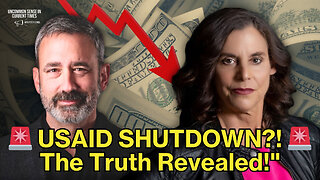 31:19
31:19
Uncommon Sense In Current Times
16 hours ago $2.66 earned"The Truth About Government Waste: How USAID is Failing & What Christians Must Do w/ Cheryl Chumley"
12.7K4 -
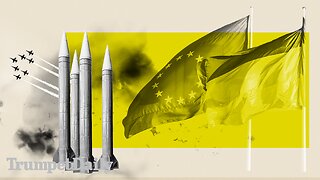 1:00:32
1:00:32
Trumpet Daily
21 hours ago $4.24 earnedA Dangerous Era of Rearmament - Trumpet Daily | Mar. 4, 2025
14.8K8 -
 3:25
3:25
Gun Drummer
21 hours ago $0.99 earnedDrowning Pool - Bodies, Gun Cover
11.5K7 -
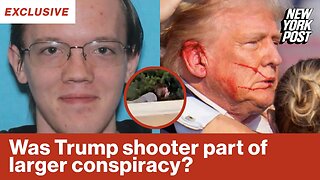 8:04
8:04
New York Post
1 day agoEXCLUSIVE: Was President Trump's would-be assassin Thomas Crooks part of a larger conspiracy?
15.8K16 -
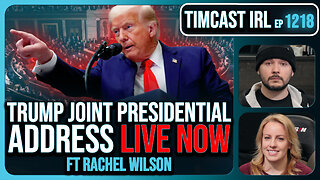 3:06:37
3:06:37
TimcastIRL
13 hours agoLIVE: Trump Joint Presidential Address, IRS To Fire 45,000 Staff w/Rachel Wilson | Timcast IRL
435K324 -
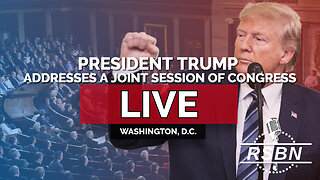 5:07:46
5:07:46
Right Side Broadcasting Network
4 days agoLIVE REPLAY: President Trump Addresses a Joint Session of Congress - 3/4/25
504K428 -
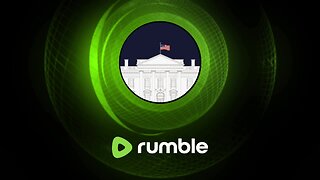 2:21:43
2:21:43
The White House
16 hours agoPresident Trump Addresses Joint Session of Congress, March 4, 2025
423K163 -
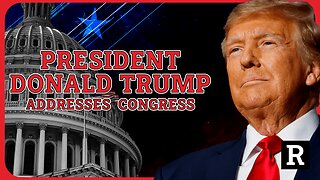 2:35:06
2:35:06
Redacted News
12 hours agoLIVE: Renewal of the American Dream | Donald Trump Addresses Joint Session of Congress | Redacted
144K198 -
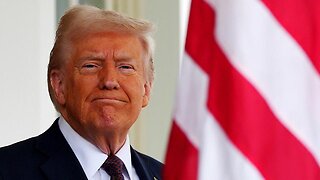 2:42:56
2:42:56
vivafrei
19 hours agoDonald Trump to Address Congress! Viva Frei LIVE WITH COMMENTARY!
206K76 -
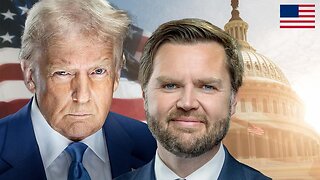 3:39:44
3:39:44
The Charlie Kirk Show
12 hours agoTHOUGHTCRIME - The Renewal of the American Dream Speech Special
250K97